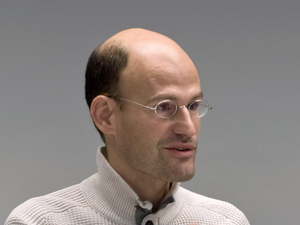The Russian war of aggression has caused a social crisis in Ukraine. Current reform projects, promoted by international lenders, may further the state’s withdrawal from social welfare.
Ukraine’s social policy system up to 2022
Social policy is fundamentally challenging in modern industrialized countries due to dynamic labor markets, an aging population, increasing living standards, and rising expenses for modern health care. In Ukraine, after the end of the Soviet Union, collapsing state revenues, low governance capacities, and political infighting led to extensive reform backlogs. In the 2000s, the social security system achieved a relative level of consolidation, mainly due to an economic upswing.
But the national welfare system did not meet the expectations of the majority of Ukraine’s population. Benefits for the unemployed were so low that many did not even bother to register. (ILO) Its health system regularly ranked in public opinion polls as one of the most corrupt sectors in the country. The average pension has remained below 100 euros a month since the economic crisis in 2014. (Ukraine-Analysen 2019, p.13) Thus, it was impossible for many in retirement to survive without support from relatives or subsistence farming. For almost half of all households in Ukraine, buying food and clothing was a major financial burden (DIF 2022-D5). In 2020, the Covid-19 pandemic, like elsewhere across the world, put additional strain on Ukrainian social policy. Even before the war, the Ukrainian social system faced several constraints. (Betliy 2021).
The Russian war of aggression and its impact
The Russian war of aggression with systematic shelling of civilian targets plunged the country into a humanitarian catastrophe in 2022. Already half a year after the beginning of the war, more than 5% of the population was homeless, 15% were internally displaced, almost 20% lived in extreme poverty, one third was unemployed. Currently, according to OCHA (2023), about 18 million people need external assistance for protection, shelter, and food - which is nearly half of the population still remaining in the country. About 80% of single elderly Ukrainians, mostly women, live below the official poverty line, and 90% of pensioners are unable to pay for even basic medical needs (OECD 2022).
But under the ongoing attack, the Ukrainian state must spend most available funds on the country’s defense, repairing critical infrastructure, and ensuring the supply of essential services like water, electricity, and heat. In 2022, the lion's share of Ukraine's budget was spent on defense – 42%. This is nine times more than the country spent on defense before the Russian invasion. Social spending is second only to defense in the state budget. However, compared to 2021, social spending has fallen from 23% to 16% of the state budget. At the same time, state revenues have also fallen significantly as a result of the GDP slump of almost 30%.
Ongoing Social Security Reforms
To cope with the social crisis caused by the war, reforms to Ukraine’s social system have gained ground on the political agenda. The association agreement with the EU also obliges Ukraine to align its legislation in the areas of employment, social policy and equal opportunities with EU directives. An EU report published in February 2023 mentions several deficits in Ukrainian legislation and summarizes: “Ukraine is at an early stage of preparation in the field of social policy and employment.” (EU Commission 2023, p.39).
The first steps to adjust social policy to Ukraine’s perceived financial capabilities were already taken in 2022. In April 2022, the Parliamentary Committee on Social Policy and Protection of Veterans' Rights started to work on a reform of the Social Code, arguing that "the legislative practice of civilized countries shows that the social policy of states should be developed taking into account their financial capabilities and the consent of societies to finance certain population groups." (Verkhovna Rada website).
In September 2022, the Ukrainian Parliament approved the dissolution of the Social Insurance Fund and its merger with the Pension Fund of Ukraine. The Social Insurance Fund was not part of the Ukrainian state budget, but was financed through employers' social security contributions and was jointly managed by representatives of the state, employers and trade unions. It made support payments to citizens who were temporarily unable to work due to illness, maternity leave, disability, accidents at work or other circumstances. It also provided medical and social services to those who paid social contributions, either through their employers or as self-employed workers.
The parliamentary opposition and trade unions opposed the merger, saying it goes against best practices in the EU, where pensions and social insurance are managed by different institutions. They doubt that administrative costs will decrease, as supporters of this legislation argue. It can be expected the number of people claiming insurance benefits during wartime will continue to rise. Ukrainian trade unions are also concerned that the merger would pave the way for the introduction of private insurance funds to provide sickness or accident benefits at work (Guz 2022).
The largest budget issue of the social security system is, by large, the pension fund. The state budget for 2023 foresees a transfer of almost 10% of total state expenditure to cover for the pension fund’s deficit. As of March 2023, through an agreement with the International Monetary Fund (IMF 2023, p. 111), Ukrainian authorities committed to reform the pension and social security system. The IMF, one of Ukraine's main lenders already before the Russian invasion, has long called for reform of the pension system, in particular the introduction of mandatory private pension insurance, based on investment of funds in capital markets. This so-called ‘second pension pillar’ already exists in Ukrainian legislation, but has not been implemented so far.
Despite the evident need for reform to Ukraine's pension system, many experts cast doubts over the promised positive effects of mandatory private pension accounts in a country at war. The International Labor Organization (ILO) also highlights the dangers of such reform at this time. According to their assessment, international evidence shows that individual pension savings systems carry many macroeconomic, financial and demographic risks for citizens, and are unable to provide social security in times of crisis (ILO 2018, p. 4). As long as the war continues, state withdrawal from the pension system could hit hardest on the vulnerable population of current pensioners, who are already severely affected by the war.
Outlook
The Ukrainian social system faces enormous challenges due to the Russian war of aggression. Current reform projects, promoted by international lenders supporting the country, imply a further withdrawal of the state from social welfare, leaving the population more vulnerable under an already precarious situation.
The need for social policy reforms in Ukraine is undisputed, but in times of war, it can carry additional risks. First, the unpredictability of the war hampers implementation and makes consequences difficult to assess. Second, as often evidenced in development research, reforms that are favored by international lenders do not necessarily address local needs and conditions. Third, the war and martial law make it very difficult for Ukrainian society, NGOs, and the expert community to actively participate in the reform process, voice their needs, and influence the outcome.
In order for Ukraine to enact sound and sustainable social reforms, international lenders and supporters of Ukraine ought to focus primarily on securing minimum social standards for the entire population, guaranteeing humanitarian and medical care, and preventing large sections of the population from falling into long-term poverty. The Ukrainian state faces the difficult task to ensure the continued functioning of the social system. Thorough reforms of the social system might be better assessed once the war is over, through a deliberative and democratic process.
Header photo by Eugene Chystiakov - Unsplash









